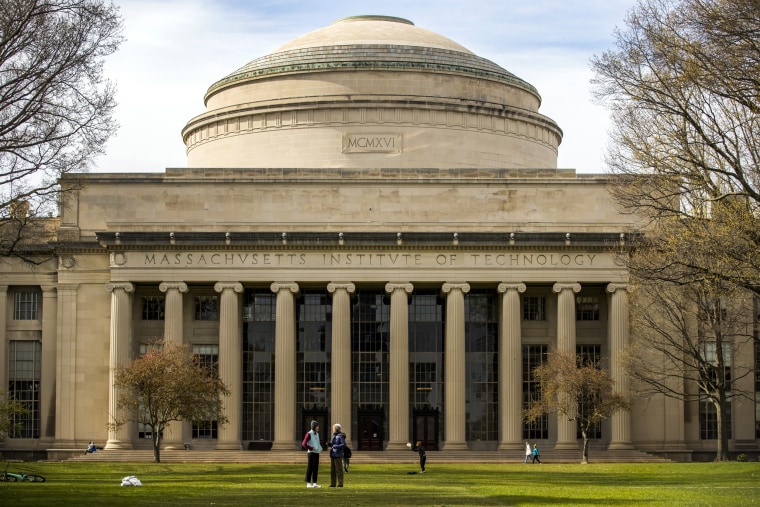Harvard University and the Massachusetts Institute of Technology are suing the Trump administration in federal court over a move to strip international students of their visas if their coursework is entirely online when classes resume in the fall.
The lawsuit, filed Wednesday in U.S. District Court in Boston against the Department of Homeland Security and Immigration and Customs Enforcement, or ICE, seeks a temporary restraining order against the policy, which was announced Monday. The lawsuit also seeks an order vacating the policy and a declaration that it is unlawful.
ICE announced Monday that "it was rescinding its COVID-19 exemption for international students, requiring all students on F-1 visas whose university curricula are entirely online to depart the country, and barring any such students currently outside the United States from entering or re-entering the United States,” the lawsuit said.
“ICE’s action leaves hundreds of thousands of international students with no educational options within the United States,” the lawsuit said.
“Just weeks from the start of the fall semester, these students are largely unable to transfer to universities providing on-campus instruction," the lawsuit said, adding that for many such students, returning to their home countries for online instruction is "impossible, impracticable, prohibitively expensive, and/or dangerous.”
The Trump administration's move was seen as a way to pressure colleges and universities to re-open their campuses with in-person classes during the pandemic.
That, the lawsuit said, would require housing students in "densely packed residential halls," which is neither safe nor "educationally advisable," and force schools to reopen without sufficient time to address "the additional risks to the health and safety of their communities."
“The effect — and perhaps even the goal — is to create as much chaos for universities and international students as possible," the lawsuit said.
DHS and ICE did not immediately respond to requests for comment.
The government announced Monday that international students will not be allowed to stay in the country if the institution in which they're enrolled is holding online-only courses this fall, and those failing to comply with the rules will risk deportation.
Students on F-1 and M-1 visas who face such a situation "must depart the country or take other measures, such as transferring to a school with in-person instruction to remain in lawful status," the Immigration and Customs Enforcement agency said in a news release.
Those who violate the rules "may face immigration consequences including, but not limited to, the initiation of removal proceedings," the agency said.
Ken Cuccinelli, the acting deputy DHS secretary, defended the policy during an interview with CNN Tuesday.
"If they’re not going to be a student or they’re going to be 100 percent online, then they don’t have a basis to be here," Cuccinelli said. “They should go home, and then they can return when the school opens."
On Monday, Harvard's Faculty of Arts and Sciences announced plans to bring back up to 40 percent of its undergraduates back to campus, including all first-year students, for the fall semester. MIT said only seniors will be invited back to campus this fall semester.
Chris Wintersinger, a Harvard Ph.D. student from Canada, told NBC News he felt the Trump administration's immigration policies do not "seem to recognize the humanness and worth that people such as myself bring to this country."
"In short, these orders one after another distract me and my colleagues from the work we're doing and make us question whether we are truly valued and welcomed here," he said.
Wintersinger, a bioengineering student, said he may not be required to leave the United States under the order because he physically works in a lab. But he still feels impacted by the policy, "because of the uncertainty it weighs upon my status here in the United States."
"Educating international students here and then watching policy be enacted that forces us out or makes us question our value here is analogous to a farmer stripping their topsoil and shipping it far away," he said. "It's completely nonsensical, stupid, and cruel."

